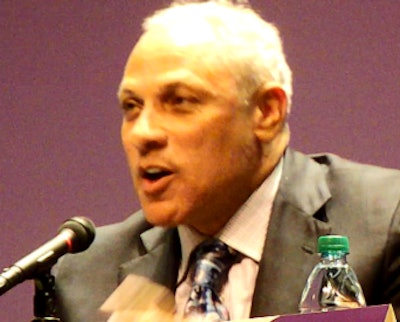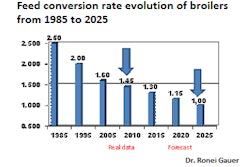
The importance of helping people in developing African nations become more efficient as farmers is not lost on former U.S. Secretary of Agriculture Mike Espy. In addition to filling a humanitarian purpose, it also can benefit the agriculture industry in the U.S.
Espy, who served as U.S. agriculture secretary during the Bill Clinton administration, and John Block, an agriculture secretary during the Ronald Reagan administration, have both become involved in a project to develop agriculture in African nations. Espy and Block joined other fellow former agriculture secretaries Dan Glickman, Ann Veneman, Mike Johanns and Ed Schafer at Kansas State University for a Landon Lecture on October 21.
“What John and I are trying to do is not just do humanitarian missions to feed African nations, but what we try to do is build a competence and capacity of small scale African farmers. Why are we doing that? We know that in America we are so proficient technologically, that our production will continue to outstretch our demand, so we have to find new markets and emerging markets to sell our farm products to,” Espy said.
And for too long, Africa has been a continent that has been overlooked for agricultural trade, Espy said. But as their competence level as farmers rises, the overall economic picture of African nations improves, and so does their purchasing ability.
“We can impress them with our technology. As they increase their incomes, they’re going to change their personal habits to eat more proteins. When they need tractors, when they need seeds, they’re going to look to America first,” Espy said.


















